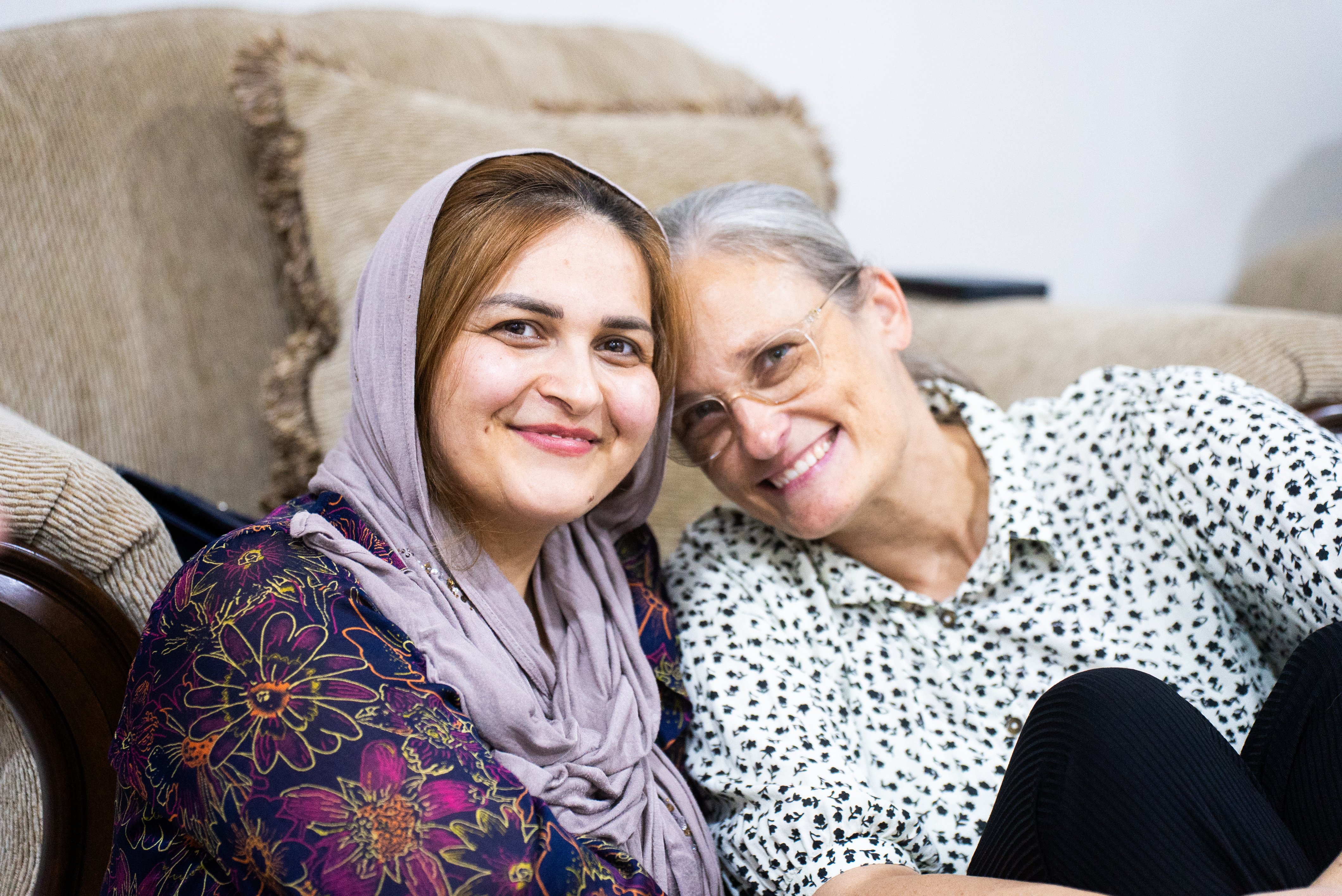Cultural differences are a given for overseas English teachers. They can even be an attractive part of cross-cultural work. Teachers love trying new foods and experiences and are fascinated by how other cultures approach life. But what happens when our worldviews fundamentally disagree with those around us? It may feel like a choice between caving to cultural pressure (changing our beliefs) or clinging to our position at the cost of relationships. But this is a false dichotomy. There is a third option that allows us to value people over perspectives without changing our beliefs.
This is not to say that everything in our cultural worldview is correct and must be defended. Individualism, for example, is a defining value of the Western worldview most of us grew up with. There is a lot about this perspective that is good, but it isn’t inherently more correct than the collectivist values of many cultures where we work. Collectivism also encourages many good and beautiful attitudes that individualism can easily miss.
But when it comes to ideas that really are mutually exclusive—like beliefs about human nature and the way the world works beyond our imperfect cultural perspectives—how do we disagree in love without compromising what we believe to be true? In reality, this is a long process that requires us to listen more than we speak and have a genuine desire to understand and care for those with whom we may deeply disagree, but it is more than worth the effort.
Understand Human Identity
It can be easy to conflate worldview with identity—thinking that our friends in other cultures are what they believe to be true. But for many Westerners, this turns out to violate our worldview! If we see innate, unconditional value in all people, then, at the core of our identity, we are all humans with worth outside of what we do or believe. Our actions are still shaped by what we believe, but there is something even more essential to us that transcends both our beliefs and behavior.
Even if we find more value in our worldview than others, we do not consider ourselves more valuable, since we are not defined by our beliefs. This idea works in our favor because, like us, our friends overseas undoubtedly see more merit in their perspectives than ours! When we see our friends and ourselves as people who carry our worldviews but are not ultimately valued by them, we can approach a disagreement in love. We honor the inherent worth in others that is not conditional on their beliefs.
Understand Cultural Context
Once we can approach a disagreement without defining the person by their perspective, we can zoom out and try to see how their worldview impacts their thinking and actions. This understanding requires spending a lot of time with people and listening intentionally. You can have all the book knowledge about the worldview of a region or people group, but each individual will hold this perspective differently—with different emphases and beliefs because of their experiences.
Time is a significant benefit of long-term overseas teaching; months and years of friendship provide opportunities to listen and authentically seek to understand a person’s worldview. This process naturally flows into empathy. While you may not believe the same way as someone else, you see how they act and think in light of their broader worldview.
For example, Westerners tend to value clarity and directness when they communicate. This bluntness might come off as incredibly rude to a Chinese person who highly values politeness and saving face. But if that Chinese friend understands the Western teacher’s worldview, they can see that no dishonor was meant. And if the teacher understands their friend’s worldview, they can empathize with how their words could be offensive.
This is a superficial example—blunt clarity vs. saving face in a discussion is an easy enough compromise. Westerners can (and probably should) seek to adjust to the cultural norms of their hosts to avoid dishonoring their friends, even if they genuinely value the more direct approach. However, the principle—understanding how worldview impacts action so we can approach disagreement with empathy—applies to much less flexible beliefs.
Dig into Discussion
One of the sweetest things in life is a good, deep conversation about what matters to us most. For overseas teachers, differences in belief can be the basis for fascinating discussions and building lasting cross-cultural community with their friends, students, and colleagues.
In the context of a friendship built on unconditional human worth and empathy, we can defend our most deeply held values and beliefs, explaining why we consider them essential and how we apply them to our lives. We should also be open to hearing the same from our friends who disagree. Though our core beliefs won’t likely change, a respected outside perspective can help shine a light on values that may not come from a true or healthy place. Friends on both sides grow—both personally and in community together—through this kind of challenging discussion.
So as you explore the possibility of entering a whole new culture and being surrounded by worldviews vastly different from your own, consider this. It will be hard. It will require patience—with yourself and others. It will take time. And the personal growth and beautiful community on the other side of that empathy and effort will be worth every ounce of the challenge.
